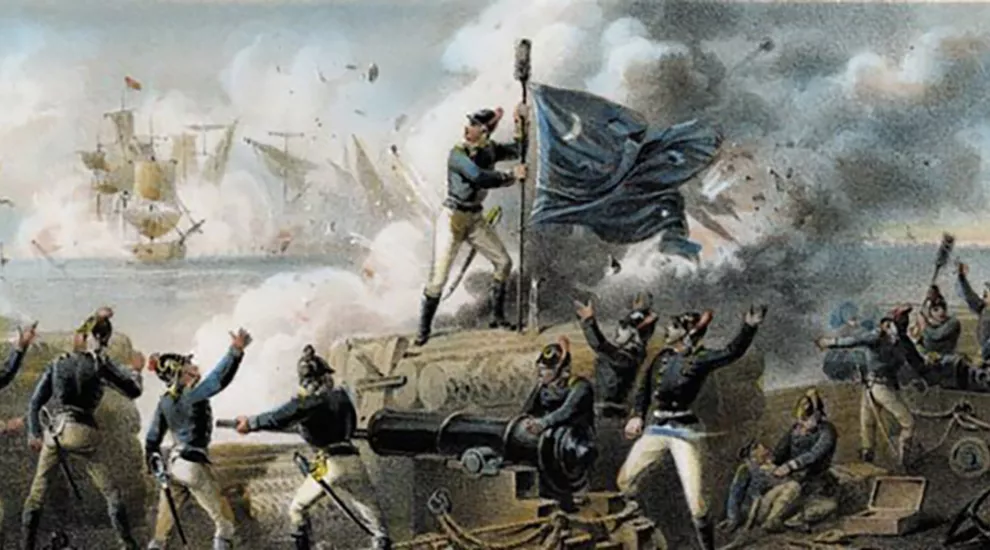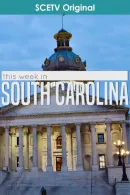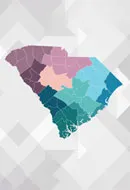
Looking for a true underdog story? We have one for you.
Carolina Day is the South Carolina exclusive holiday that celebrates the anniversary of the improbable and unexpected Patriot victory at the Battle of Sullivan's Island. On June 28, 1776, rebel Patriots scored a crucial victory against the British six days before the Declaration of Independence was signed in Philadelphia, Pennsylvania.
Picture this: You are a soldier stationed in the world's first ever fort built exclusively out of Palmetto tree logs and sand. Other than the Charleston heat and humidity found in the month of June the situation doesn't sound too bad, right? Only here is the kicker: A massive British naval fleet is on its way to attack Charleston and the fort you are in is barely half-finished in its construction. General Charles Lee, who is in charge of the Southern Department (which consists of Virginia, the Carolinas and Georgia) took one look at this unfinished fort and called it a "slaughter pen.

Although you may not admit it publicly, Lee sounds like he has a point, right? However your direct commanding officer Colonel William Moultrie has faith that we can hold this position on the southern end of Sullivan's Island. "How?," you probably ask yourself. The fort is half-done, you and your rebel compatriots have little combat experience and you are low on weapons and ammunition. There is no time to get more supplies and you are all on your own. The British are planning a two-pronged attack: Commodore Sir Peter Parker's nine heavily armed "Man O' War" ships are going to bombard Fort Sullivan head-on from the coast, while General Henry Clinton's infantry is going to wade across Breach Inlet from Long Island (present-day Isle of Palms) and attack from behind. Inclement weather kept the British away from Fort Sullivan earlier in June, but on the 28th, Commodore Parker and General Clinton launch their attack and a nine-hour battle ensues.

Guess what? In a bizarre turn of events, you won. All the odds were against the Patriots and yet the British still suffered a humiliating defeat. How on earth did this happen? Was it luck? Overconfidence on the part of the British? Poor understanding of Sullivan's Island's geography? All of the above? Mother Nature definitely helped out the Patriots: General Henry Clinton's troops could not get across Breach Inlet and were absent during the battle. Commodore Parker's warships lobbed cannonball after cannonball at Fort Sullivan, but to the surprise of you and your comrades, there was an unintended benefit of using Palmetto tree logs. Unlike regular wood, which splinters when hit with artillery, wood from Palmetto trees is soft and spongy. Most of Commodore Parker's cannonballs either harmlessly bounced off the fort's walls or became embedded.
.gif)
A sand bar also prevented three of Parker's warships from flanking the fort's vulnerable right side. The battered British were forced to draw back from Charleston and would not be seen again until a second, much more successful assault occurs in 1780. Until that day? Charleston is saved, and you just showed the other colonies that putting up a fight against the might of Great Britain is indeed possible. After the battle, one Royal Navy sailor wrote: “We never had such a drubbing in our lives." According to Charles Lee, “the dilatoriness and stupidity of the enemy saved us.” Unamused officials back in England had to listen as Commodore Sir Peter Parker and General Henry Clinton blamed each other for the defeat in Charleston Harbor. Fort Sullivan was renamed "Fort Moultrie" in honor of Colonel William Moultrie, who was also subsequently promoted to Brigadier General. The "President" of South Carolina, John Rutledge, presented his sword to Sergeant William Jasper - the man who risked his life to retrieve the "Moultrie Flag," which was knocked down by a well-placed cannon shot during the battle.

For those living in South Carolina? The victory was a cause for celebration, and celebrate they did. Beginning in 1777, the Palmetto Society was established and South Carolinians commemorated the anniversary of the victorious battle with feasting, parades, cannon fire and balls. People all over the palmetto state raised their glasses to toast General Moultrie, Sgt. Jasper, and the S.C. infantry. Back in those days, the holiday did not officially have a name yet: Several names like "Carolina Day", "Palmetto Day", "Sgt. Jasper's Day" and "The 28th of June" were all used interchangeably until about 1912, and the holiday has been consistently known as Carolina Day ever since. In present-day Charleston, the holiday is commemorated with re-enactments at Fort Moultrie National Park, and St. Michael's Church in downtown Charleston holds a service.

Unfortunately not everyone in South Carolina is able to make a trip to Charleston to partake in these festivities. Fear not! The South Carolina ETV team brings Carolina Day to you! KnowItAll.org presents its newest addition to the series Let's Go!: Fort Moultrie National Park. Here, people can tour a virtual version of the Fort Moultrie Visitor's Center and learn more about the site's rich history. In addition, audiences can learn more about the evolution of the Carolina Day holiday with the KnowItAll signature series History In A Nutshell! Make your Carolina Day more festive by firing up the grill and checking out these fun, educational assets!






